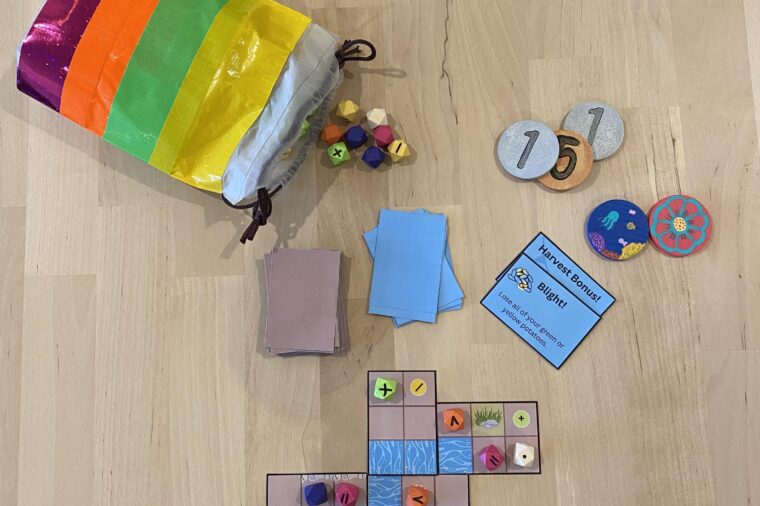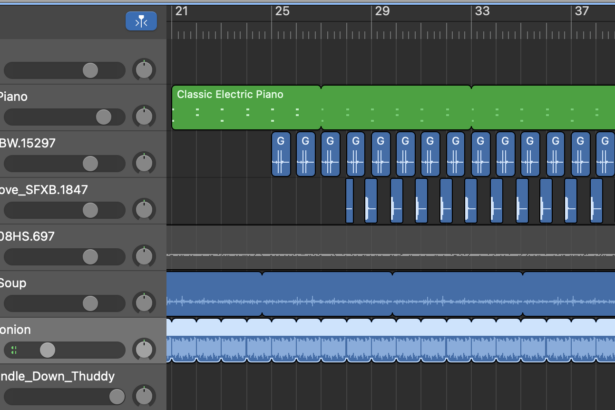What is it?
Papas is a table-top game that invites players to examine real-world tensions while celebrating Peruvian potato cultivation. As players buy, plant, and harvest various types of potatoes, they must wrestle with difficult choices. Do they opt for monoculture, which offers quick financial reward at the expense of their farm’s stability? Do they favor polyculture, which rewards biodiversity efforts with a more sustainable financial and agricultural landscape? Is there a way to craft a farm that models the best of both choices? As players examine these tensions, they are invited to reflect on essential questions about where our food comes from, the stability of our global food supply, the health of the earth, and the relationship between capitalism and Indigenous farming practices.
Who’s it for?
Everyone! With simple rules and tactile pieces, Papas can be played as-is or can be easily modified for its players. It can be used as a sorting and color-matching activity, a meditative practice of building beautiful farms, or as a strategy game with multiple ways to win. It is perfect for game nights and as a fun way to encourage students to explore enduring scientific and global concepts.
Why Potatoes?
Because they are amazing! Potatoes are a staple crop – a group of crops that support 90% of the world’s energy needs. Millions of people rely on potatoes to survive and thrive, but few know the history of the humble potato. Potatoes (or Papas in Quechua) originated in the Andes mountains of South America about 7,000 years ago. Since then, the potato has evolved into hundreds of different varieties – big, small, purple, magenta, orange, round, tube-like – even some that look like pinecones! A single family farmer in Peru can identify, name, and cultivate hundreds of types of potatoes at a time!



